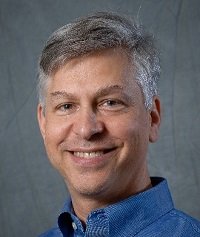Warren J. Jasper, PhD, PE is a Professor in the Textile Engineering, Chemistry and Science Department at North Carolina State University where he has been since 1991. He received his BS and MS degrees from MIT and his PhD from Stanford University in Aeronautics and Astronautics. His research interests include real-time measurement and control of textile processes (fabric manufacturing and dyeing), electro-static filtration (electrets), cold plasma textile filters, and wireless power transfer. He has authored or co-authored over 70 peer reviewed publications, and has written over 50 Linux device drivers for data acquisition boards. He currently maintains the largest single author repository of open source drivers on the internet located at https://github.com/wjasper/Linux_Drivers. He currently teaches courses in automatic control, analog and digital circuits, and fabric formation (knitting, weaving, and non-wovens). In 2010, he received the Gertrude Cox Award for innovative excellence in teaching and learning with technology and was a recipient of a Fulbright award in 2014 and again in 2019. He was inducted into the Academy of Outstanding Faculty in Extension and Engagement at North Carolina State University in 2019.
State Department Profile
Intelligence and Research
Office of Emerging Threats, Technology and Cyber Affairs
Warren Jasper serves as a Foreign Affairs Officer within the Office of Emerging Threats, Technology and Cyber Affairs (CYBER). The office is responsible for coordinating cyber operations and for all-source intelligence analysis on all cyber and emerging technology issues, including policies, objectives, operations and organizations of foreign governments and non-state actors. Specific issues include Internet governance, artificial intelligence, quantum computing, privacy, cybercrime, fifth-generation communication technology (5G), edge computing, and other emerging technology issues. In this role, he works with analysts and policy makers throughout the State Department and the Intelligence Community to integrate science and technology with intelligence and foreign policy.
|




